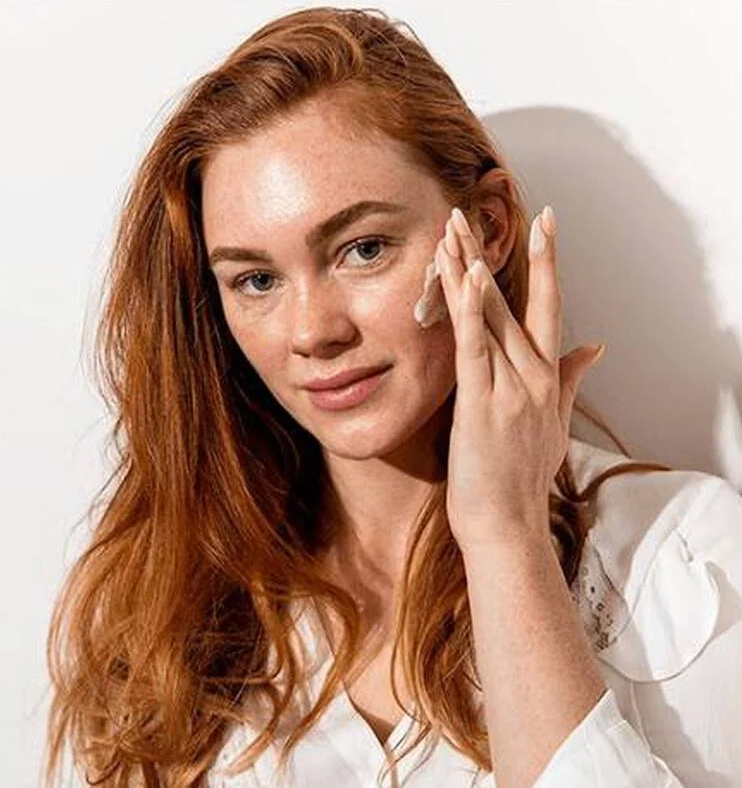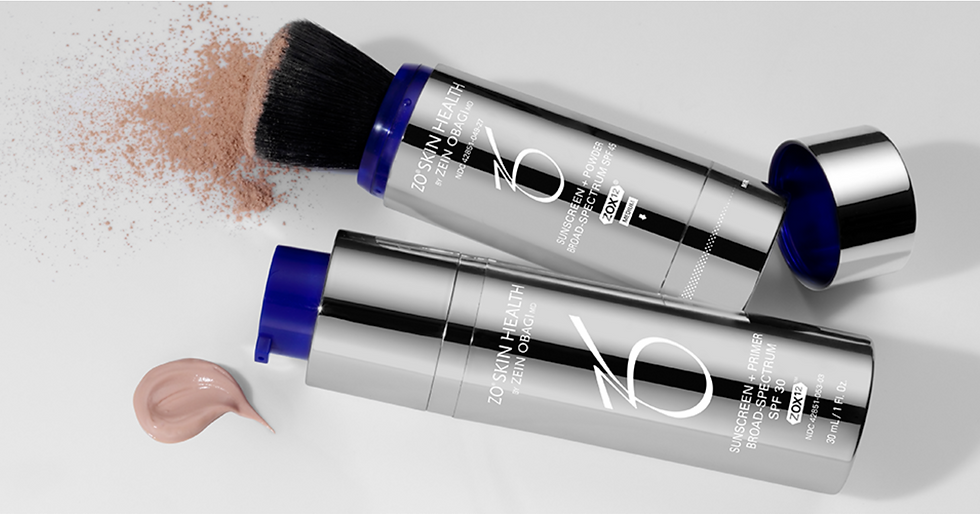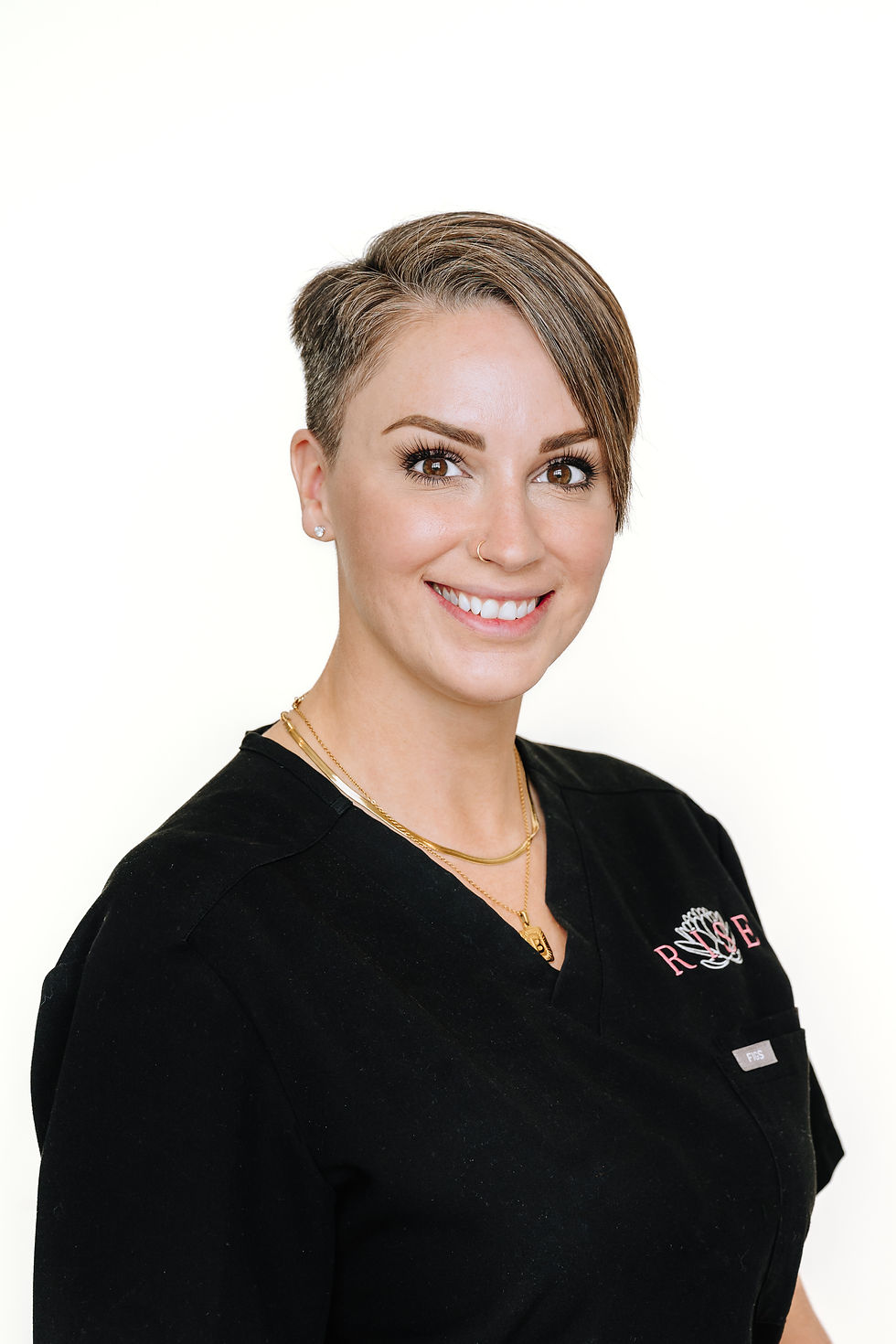Why you should wear sunscreen everyday
- Laura McIntyre
- Jun 18, 2025
- 5 min read
While we’re all familiar with the harshness of the summer sun, few pay attention to the necessity of sunscreen on an everyday basis, and not just when visiting the beach. Sunscreen is in fact the most powerful skincare product you can have in your collection, making wearing sunscreen every day the single best thing you can do to care for and protect your skin.

WHY YOU SHOULD WEAR SUNSCREEN EVERY DAY
Over time, sun damage can take both an aesthetic and medical toll on the skin. Ultraviolet (UV) light damages the skin and its underlying connective tissue, leading to the development of wrinkles and lines. The effects of UV exposure, and sun damage, are cumulative with the full extent of damage not immediately apparent. Sun exposure can also increase skin cancer risk, an all too common occurrence. Any exposure can result in sun damage, with different types of UV radiation resulting in different types of damage. From the immediately apparent sunburn caused by UVB light, to the deeply penetrating damage resulting from UVA light, you should do all you can to protect your skin from the sun.
Unfortunately, many people only think to use sunscreen on scorching hot days, or if they’re going to be outside all day. In reality, sunscreen should be applied every day, even if it is overcast outside or you’re spending much of the day inside. UV radiation is not only present on a warm summer’s day but are also present and can damage skin when the weather is cool, or there is cloud cover. This is especially the case for people with a fairer skin tone, as they have less of the protective pigment called melanin. However, people of all skin tones can get skin cancer, and should practice proper sun protection, including wearing daily sunscreen.

WHY IS SUNSCREEN IMPORTANT DAY-TO-DAY?
Along with seeking shade and covering your skin with clothing, sunscreen is also one of the most effective ways of protecting your skin from the sun. UV levels and peak sun protection times are often included in local weather forecasts and should be used as a guide of when to avoid being in the sun. For all-round skin defence, it’s important to protect your face and body using a broad-spectrum sunscreen, that are formulated to offer protection against both UVA and UVB rays.
UVB is particularly harmful when it comes to skin cancer risk. UVB causes direct damage to the skin cells (sunburn) and results in the majority of DNA damage. Down the track those cells may remain abnormal and may become cancerous.
UVA radiation can also contribute to the development of skin cancer by weakening the skin’s immune responses and checking mechanisms. UVA also doesn’t burn the skin like UVB, which means that although damage is occurring, we may not be aware of it. The full impact of damage also may not be immediately visible, with the results of some sun damage appearing years later.
HOW DOES SUNSCREEN PROTECT YOU?
Sunscreen works by preventing UV rays from penetrating the skin, thereby reducing the risk of sunburn and skin cancer, and the incidence of sunspots, discolouration and signs of anti-ageing.

90% of skin cancers can be attributed to sun damage, which means sun protection is essential to your long-term health and wellbeing. Any form will reduce the risk of skin cancer, particularly sunscreen which can provide global whole-body protection.
There are two types of sunscreen that you may wish to consider for protection: chemical and physical. Chemical sunscreens are designed to absorb and reflect UV light and transmit it into a very low heat energy.
Physical sunscreens, consist of fine mineral particles (typically zinc oxide and titanium dioxide), to reflect and absorb UV. Physical and chemical sunscreens can also be used in a complementary way to provide a higher sun protection factor (SPF) than either one alone. While highly-effective, these combined body and face sunscreens are still suitable for sensitive skin.
WEARING SUNSCREEN EVERY DAY
There is a common misconception that sunscreen only needs to be applied on hot days in summer, or if you’re spending the day outside. However, UV radiation is not only present on warm days. Sun protection needs to be front of mind each and every day, and through all seasons.
While UVB is present at higher levels during the summer months, UVA light is strong all-year round. In fact, UVA can actually penetrate through dark clouds and glass, meaning that our skin can still sustain damage even on overcast days or if we are spending the day inside. UVA damage is also not reversible, which is why it’s important to start taking protective measures today.
Even those with darker skin tones (and therefore higher quantities of the protective pigment melanin) should also take care to apply sunscreen every day. While you may not burn as noticeably as your fair-skinned counterparts, you are still susceptible to sun-induced damage.
Sun damage is cumulative. Small amounts of sun exposure add up over time, which is why it’s best to develop a habit of applying SPF each and every day.
HOW TO CHOOSE THE RIGHT EVERYDAY SUNSCREEN

High SPF is the most important criteria, with SPF 30 being sufficient but SPF 50+ being ideal. As there is not just one type of UV radiation to protect against, your chosen sunscreen should also be labelled as a “broad-spectrum” SPF. “Broad-spectrum” sunscreens are formulated to protect you from both UVA and UVB rays.
When finding a daily sunscreen, ensure that the sunscreen you choose is lightweight and feels pleasant on the skin. Take your own personal preferences and skin type into consideration when choosing the best everyday sunscreen for you. A sunscreen that you enjoy using, with a formula that works within your daily routine, will be easier to adopt as a daily habit.
At Rise Medical Aesthetics we offer a wide range of sunscreens from medical grade skin care lines ZO Skin Health, AlumierMD, Vivier Skin, and Colorscience.
Sunscreen is crucial for facial skin health as it protects against harmful UV rays, which can lead to sunburn, premature aging, and skin cancer. Daily sunscreen use is one of the best ways to maintain a youthful appearance and prevent long-term skin damage.

We asked our skin specialist Brianna McGavin LMA why sunscreen is so beneficial for your face and here's her top 8 reasons:
Prevents Sunburn:
Sunscreen with broad-spectrum protection (UVA and UVB) shields your skin from sunburn, which can cause immediate damage and increase the risk of skin cancer.
Reduces Skin Cancer Risk:
Regular sunscreen use, especially with SPF 15 or higher, has been shown to significantly lower the risk of developing squamous cell carcinoma and melanoma, the most dangerous form of skin cancer.
Combats Premature Aging:
Sun exposure is a major contributor to wrinkles, fine lines, and age spots. Sunscreen helps prevent collagen and elastin breakdown, preserving skin elasticity and a youthful appearance.
Maintains Even Skin Tone:
UV damage can cause uneven skin tone and pigmentation issues. Sunscreen helps protect against this, keeping your complexion clear and even.
Protects Against Sun Sensitivity:
Certain medications can make your skin more sensitive to the sun. Sunscreen helps protect against this, preventing potential irritation and sunburn.
Keeps Skin Conditions from Flaring:
Skin conditions like rosacea and eczema can worsen with sun exposure. Sunscreen can help manage these conditions by preventing flare-ups.
Improves Skin Barrier Function:
Some sunscreens contain hydrating ingredients that can moisturize and strengthen the skin's natural barrier.
Reduces Inflammation:
Some sunscreens contain ingredients that can help reduce inflammation caused by UV rays.

In short, sunscreen is an essential part of any skincare routine, not just for beach days, but for everyday protection against the sun's harmful effects.
We want your skin glowing, not burning this summer! Come in and say hi to our skin specialist Brianna McGavin LMA @bri.juvenate and she can help you select a sunscreen that will work best for you or ask our knowledgeable injectors about our sunscreens at your next treatment.



Comments